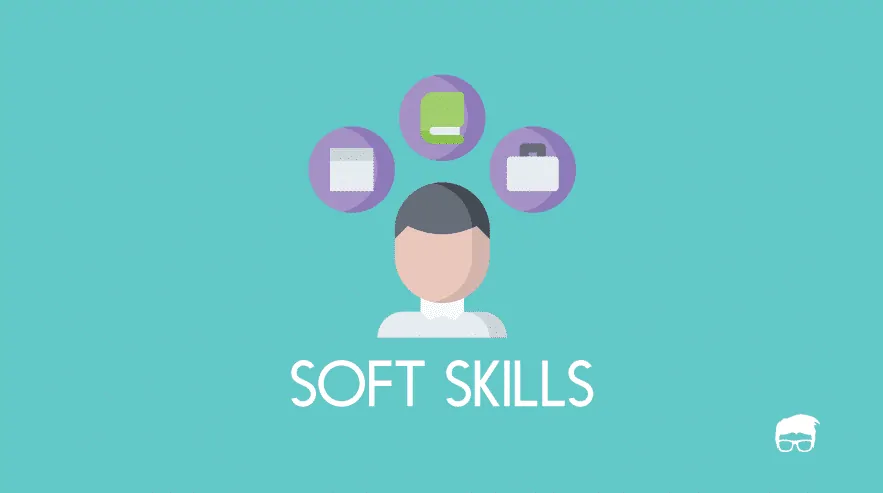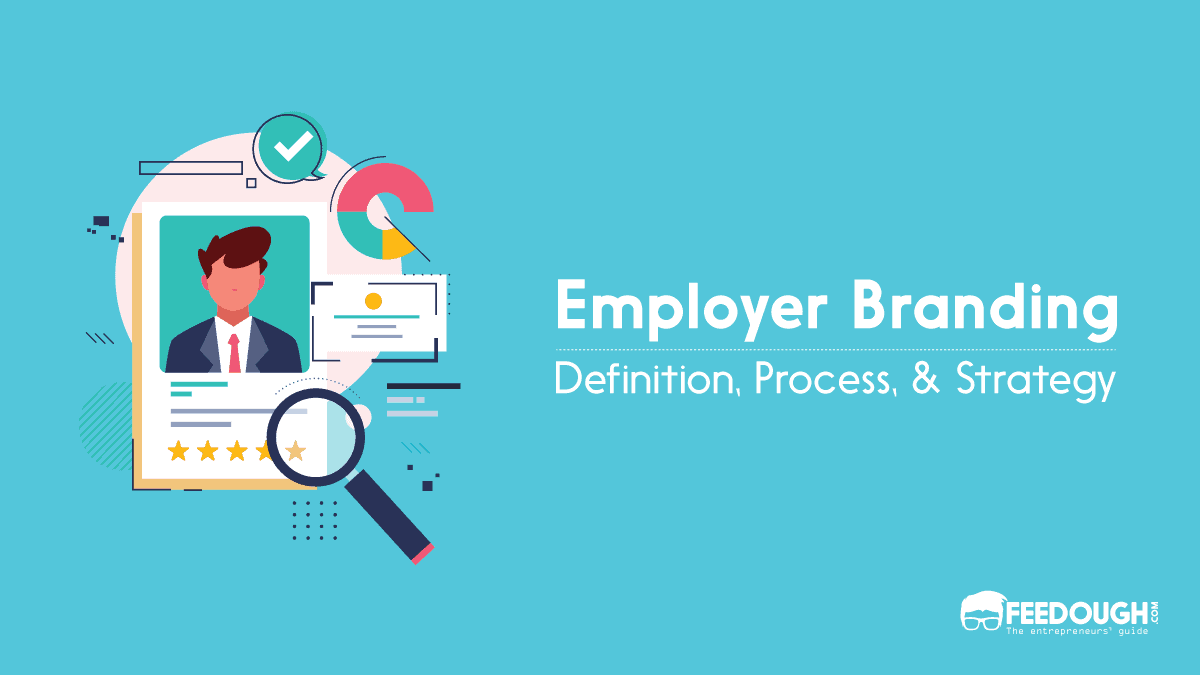The stress of finding a job in this economy is enough to lose your brain cells one by one.
The modern job market is highly competitive and challenging for an average Joe. People are drawn to participate in this rat race, but unlike an actual race, it is not optional. You have no choice but to be equally or even more competitive than the next person.
But the key to unlocking the secrets of the job market is the answer to this crucial question – what do employers look for in candidates? What are their expectations?
This is not confined to just your degree—it encompasses a wide variety of skills an employer looks for in an individual to bring to their company. While education is an essential factor to consider, your abilities and skills are also highly crucial.
In this article, we will walk you through the essential skills you need to stand out amongst the job seekers in the current job market.
But before that, let us dive deep into why skills are necessary for the modern job market.
What Is the Importance of Skills in Today’s Job Market?
Education is critical to land their dream job. But gone are the days when a degree was the only factor considered eligible for a job. Employers need to know what you can do, not just what you learned in a classroom. Understanding the skills that employers are looking for is crucial to stand out.
Here is the thing: the job market changes faster than anything. Skills that are in demand right now would be old news tomorrow. That is why being a lifelong learner is your ticket to staying relevant. It’s not about having skills- it’s about having the right skills at the right time. You must constantly modify and mould your skill level to the demands of the present job market.
What Are the Top 20 Skills Required in Today’s Workplace?
If you have to think about skills as a broad concept, pinpointing the ones you need would be tiring and challenging.
That’s why we will give you a detailed list of the top 20 skills that employers look for on a resume.
We have separated these skills into four categories:
- Hard Skills: The technical stuff that gets the job done
- Soft Skills: The people-focused abilities that make you easier to work with
- Leadership Skills: The ones that are required to handle a group of people
- Personal Attributes: The unique qualities that make you the person you are
Some of these are learned through training or education, while others are more innate – think of them as your natural superpowers. Understanding and developing these skills can seriously boost your career, whether you are a fresh grad or a seasoned pro.
Let’s break down each of these skills one by one
Hard Skills
These are the types of skills that could be measured and acquired through education, training, or hands-on experience. These skills are essential for carrying out job-specific tasks and are quantifiable. This makes it easier for employers to assess their candidates during their hiring process.
Hard skills are the bread and butter of your professional capabilities. They allow you to perform specific job functions and are often the first things employers look for on a resume.
Unlike some other aspects of your professional persona, hard skills can be learned and improved over time. With dedication and practice, you can add new hard skills or level up the ones you already have.
Some significant examples of hard skills include technical proficiency, data analysis, project management, digital literacy, and programming/coding.
Technical Proficiency
Technical proficiency is the ability to use tools, procedures, and processes in a particular field with expertise. It includes the necessary information to use the appropriate tools, machinery, or technological devices for a given task. This ability is critical in many fields since it allows you to work effectively and adjust to unexpected challenges.
Technical skill makes you the go-to guy for all things tech, whether managing sophisticated software, developing a website, or fixing a computer issue. In simpler terms, you can comprehend and use technology effectively and confidently.
Technical proficiency is essential for today’s job market. It shows a candidate’s capability to handle specific job requirements properly.
Employers often look for candidates with technical proficiency because they can use technology to improve the organisation’s performance.
Not to mention, it will also help to increase innovation within the company.
If you are looking to stay relevant in today’s tech-driven world, boosting your technical proficiency is one of the wisest moves you can make
Courses That Could Help With Improving Technical Proficiency
- Introduction to Computer Science (CS50) by Harvard University
- Networking Essentials by Cisco Networking Academy
Data Analysis
Data is all around us these days. From your social media activity to your favourite shopping apps, tons of data is collected every second. But all that information is not helpful until someone can understand it–this is where data analysis as a skill comes in.
Data analysis is a versatile skill. Whether you are in marketing or the healthcare industry, I’m sure this skill will be most important.
Data analysis is an excellent choice if you’re looking for a skill that’s in demand, pays well, and lets you problem-solve in exciting ways.
Plus, it’s not just about numbers. It’s about understanding the story behind the data and using that knowledge to drive real-world decisions.
Learning data analysis should be very simple if you like solving puzzles, figuring out patterns, and helping people make sense of things.
Courses That Could Help With Improving Data Analysis
- SQL for Data Science by UC Davis via Coursera
- Data Analysis with R Programming by Google via Coursera
Project Management
Have you ever planned and executed something on your own, like a birthday party or a school event? That entire process is a form of project management. If people often seek your help with organising and planning, you likely possess this skill!
In the workplace context, project management is planning, organising, and overseeing a project from start to finish, ensuring it meets time, budget, and objective standards.
As a skill, project management includes juggling multiple tasks on your own. This would include setting goals, allocating resources, handling risks, and keeping them on track. Effective project management is crucial to ensure everything runs smoothly regardless of the team size you’re leading.
Project management is a valuable skill regardless of the industry in which you work. It helps to be efficient and organisational in the workplace.
Strong project management keeps everything on track, whether managing a marketing campaign or launching a service.
Courses That Could Help With Improving Project Management
- Project Management Principles and Practices by the University of California via Coursera
- Project Management (PT) Professional Certificate by Google via Coursera
Digital Literacy
In our increasingly digital world, there is no doubt that digital literacy is an efficient skill.
Digital literacy is open to knowing how to use a smartphone or post pictures on social media. It involved understanding the digital landscape and navigating it responsibly and efficiently. It also includes being familiar with digital etiquette and protecting your privacy and security.
Digital literacy is a crucial skill in the current workplace, and its importance can’t be discussed enough. This skill is essential because most jobs involve using digital devices, making it a requirement rather than optional knowledge.
Familiarity with technology and its works helps open doors for better career opportunities. This is because many of the present high-level positions require solid digital skills.
Courses That Could Help With Improving Digital Literacy
- Fundamentals of Digital Marketing by Google Digital Garage
- Digital Literacy Course by Microsoft
Programming/Coding
Programming is the language of the digital world. The knowledge enables us to create everything from basic web pages to sophisticated software systems. Coding is more than just writing lines of code; it’s about solving issues, developing solutions, and bringing ideas to life with technology. Programmers have the unique ability to transform ideas into usable tools that can revolutionise the way organisations operate or users engage with technology.
Employers value coding skills since they are necessary for innovation and progress in the modern world of technology. Programmers shape the future by automating processes, improving user experiences, and building new digital products. They do more than just carry out orders; they think carefully about improving system efficiency, reliability, and adaptability. Coding skills enable people to tackle tricky issues, simplify operations, and develop innovative solutions that give businesses a competitive advantage.
Courses That Could Help With Programming/Coding
- Python for Everybody by Coursera
- The Web Developer Bootcamp by Udemy
Soft Skills
Soft skills are personal attributes that affect how you interact with others and handle your work. Unlike hard skills, which involve specific knowledge and expertise, soft skills include communication, teamwork, etc.
Among the many skills employers look for in a candidate, these skills also take up a significant share. For employers, soft skills are crucial because they show how well someone can adjust to a team or handle unexpected situations.
People with solid and soft skills can work better with others, communicate properly, and adapt to changes quickly. They also build a good rapport with their clients, solve problems faster, and contribute to a positive workspace.
Employers want someone who knows how to get the job done, how well they get along with their team, and how they can handle the everyday stress of the workplace.
Soft skills can be further categorised into four skills: communication, teamwork, problem-solving adaptability, and time management.
Even though they seem simple, the correct way of carrying them out is what an employer looks for in their potential candidate.
We have chosen ten soft skills that are essential in the workplace. These are:
- Communication
- Teamwork
- Problem-solving
- Adaptability
- Time-management
- Decision-making
- Conflict resolution
- Delegating
- Motivational skills
- Strategic thinking
Communication
This skill does not need further introduction. Some cannot study this skill from textbooks or reading materials. It is not technical; it is behavioural. For this skill, you have to introspect and identify your weak points.
Good communication is one of the most essential skills to have in a workplace. Whether working with a team or individually, your communication skills can make a big difference in how you get your work done. Communicating clearly with team members without causing any misunderstandings will help finish the project on time and efficiently.
A strong communication skill level will also help build trust among co-workers, managers, and clients, leading to better relationships and smoother collaboration.
Employers look for this soft skill in candidates because they know that good communicators are more likely to be productive and work well in a team. They want candidates who can express themselves well, listen effectively, and adjust their communication based on the audience.
Tips to Improve Communication
- Practice active listening
- Be aware of your body language
- Tailor your message to your audience
- Seek and provide constructive feedback
- Practice public speaking
Resources to Help Improve Your Communication Skills
- Effective Communication: Writing, Design, and Presentation Specialisation – Coursera
- Communicating with Confidence – LinkedIn Learning
- “How to Speak So That People Want to Listen” – Ted talk by Julian Treasure
Teamwork
Teamwork is essential in the workplace. Most jobs involve working with others to achieve a common goal. When people work well together, tasks get done faster, and the results are much better. Teamwork allows you to bring your unique ideas to the table, creating a diverse solution to problems. It also helps to divide and delegate tasks based on each person’s skill. This will make everyone’s workload manageable.
Being a good team player means sharing ideas, listening to others, and offering help when needed. Everyone benefits from increased trust, an enjoyable work environment, and frequently higher job satisfaction.
For employers, a candidate with good teamwork is a good sign. This is because they know that no matter how skilful the person is, they must work with others to carry out most tasks. A good team player will strengthen the group and help the organisation achieve its goals more efficiently.
Tips to Improve Teamwork
- Respect others’ opinions and ideas
- Take responsibility for your tasks
- Offer help to team members when needed
- Celebrate team successes
Courses That Could Help With Improving the Skill
- Teamwork Skills: Communicating Effectively in Group by Coursera
- “3 Ways to create a work culture that brings out the best in employees” – Ted talk by Chris White
Problem-Solving
Are you usually the designated person to whom your friends come for help? Do they value your advice on any situation? This means that you have excellent problem-solving skills.
A workplace can give rise to many unexpected challenges and issues. Being able to think through a problem, identify the solution, and carry it out is what helps things run smoothly. Good problem-solvers don’t get stuck; they break down the issue. They figure out what is causing it and develop practical solutions. This saves time, reduces stress, and keeps projects on their track.
Problem-solving also includes being resourceful and sometimes working with others to find the best solution. Whether it is a technical issue or a client concern, having the skill to handle problems faster and effectively makes a huge difference in the workplace.
There is no doubt that being a problem-solver in the workplace is helpful. Employers seek this skill in candidates so they can handle challenges on their own without needing any direction. Employees who can independently solve their problems or within a team keep things moving forward and contribute to the company’s success.
Tips to Improve Problem-Solving
- Define the problem clearly
- Break complex problems into smaller parts
- Consider multiple solutions
- Use critical thinking techniques
- Learn from past problem-solving experiences
Resources That Could Help With Improving the Skill
- Creative Problem Solving by Coursera
- Problem-Solving Techniques by LinkedIn Learning
- The Importance of Problem-Solving Skills in the Workplace – Blog by William Beaumont-Oates
Adaptability
With change being the only constant thing in today’s fast-paced workplace, adaptability is a must-have skill. You must be prepared to adjust to any changes and how quickly they might come at you.
Adaptable people know how to roll with the punches, whether learning a new technology or overcoming unexpected challenges. They don’t simply survive change– they embrace it. They find new ways to stay productive and creative.
Employers value adaptability because it means you’re ready for anything. Companies need people who can keep up in a work where things move at such a fast pace of work. According to them, if you are adaptable, they know you’re reliable and will turn these obstacles into opportunities.
Tips to Improve Adaptability
- Embrace change as an opportunity
- Stay curious and open-minded
- Develop a growth mindset
- Practice flexibility in your routines
- Learn from diverse perspectives
Resources to Improve Adaptability Skill
- Developing Adaptability as a Manager by LinkedIn Learning
- A blog titled “Adaptability in the workplace: Defining and improving this key skill” by Allaya Cooks-Campbell via BetterUp
Time-Management
Time management is an absolute superpower in the workplace. It is all about knowing how to make the most of your day, juggling multiple tasks, and meeting deadlines. Effective time managers break down projects and prioritise essential tasks. They don’t work harder– they work smarter.
People who manage their time well can manage their workload while leaving space for unexpected tasks. Whether handling multiple projects or tight deadlines, they keep things running smoothly without getting overwhelmed.
Employers look for candidates with time management because they know that you can be reliable and efficient. They can count on you to finish a task within the deadline without hassle. They also know you can handle these responsibilities without needing supervision or support. In a fast-paced work environment, an employee with great time management skills is greatly valued, as he will be more productive and contribute to the team’s overall success. Therefore, it’ll be helpful for job-seeking if you add time-management skills to your resume.
Tips to Improve Time-Management Skills
- Use time-blocking techniques such as Daytheming (dedicate entire days to specific areas of work or types of tasks, for example- Mondays for strategic planning, Tuesdays for client meetings, etc.) or Pomodoro Technique (work in focused 25-minute intervals [called “Pomodoros”], followed by short breaks).
- Minimise distractions
- Set realistic goals and deadlines
- Take regular breaks to maintain productivity
Courses to Improve Time-Management Skills
- Work Smarter, Not Harder: Time Management for Personal & Professional Productivity by Coursera
- Time Management Fundamentals by LinkedIn Learning
Decision-Making
We have all come across certain situations in our lives where we had to make a crucial decision. It might have been difficult and uncomfortable, but we still had to create one. A person who can make the best decision under pressure is a great asset to a company. This skill requires critical thinking, logical reasoning and the confidence to be decisive while also being open to feedback.
Employers value decision-making skills so much because they know you can handle responsibility and make informed choices on your own. People who can make good decisions tend to solve problems quickly, keep things moving, and reduce unnecessary delays. They know how to weigh their options, make confident calls, and reduce risks.
Having good decision-making skills also means that you save time and resources by being decisive and avoiding any overthinking. At the end of the day, employers want candidates who can keep projects on track and help the team achieve better results. This is why this skill is very important in the workplace.
Tips to Improve Decision-Making
- Gather and analyse relevant information
- Consider short-term and long-term consequences
- Use decision-making frameworks (e.g., SWOT analysis, decision matrix)
- Seek input from others when appropriate
- Learn from past decisions, both good and bad
Resources to Help With Decision-Making
- Critical Thinking and Decision Making by edX
- Data-driven Decision Making by Coursera
Conflict-Resolution
Conflict is inevitable in the workplace. Whether it is a small team gathered for a project or the entirety of an office, disagreements are bound to happen. But the way it is handled is the most important thing,
Teams can be diverse, with different individuals joining together with unique and fresh opinions. In such a case, conflict will arise. A candidate who can solve any conflicts calmly and logically is truly an asset to the company. They solve the root cause of the problem before letting it escalate and make things worse. To employers, such a candidate who can manage conflicts easily is helpful to the organisation. They know that these types of individuals can be counted on to keep the peace of the organisation, ultimately contributing to the overall productivity
Tips to Improve Conflict-Resolution Skill
- Remain calm and objective
- Practice active listening to understand all perspectives
- Focus on the issue, not the person
- Look for common ground and shared goals
- Develop win-win solutions when possible
Resources to Help in Improving Conflict Resolution
- Conflict Resolution Skills by Coursera
- Conflict Management Specialisation by Coursera
Delegation
Delegation includes more than just dividing tasks; it is a powerful tool that changes how a team operates. Imagine a conductor leading an orchestra and guiding each musician to play their part. When leaders delegate effectively, they empower their teams to take responsibility for their work. This helps to create an environment where everyone can contribute their unique talents.
Employers are highly aware of the importance of delegation. They look for candidates who know that success is a team effort. They want someone who knows how to balance workload and makes sure that the tasks are distributed according to expertise.
There is no doubt that employers value and want to maintain a strong sense of collaboration in their workplace. To them, someone who can delete tasks well is seen as a strong leader. Employers know that these individuals are capable of managing teams effectively and driving them to success. Therefore, delegation is a skill that helps the organisation succeed, making it an invaluable skill in the workplace.
Tips to Improve Delegation
- Gather and analyse relevant information
- Consider short-term and long-term consequences
- Use decision-making frameworks (e.g., SWOT analysis, decision matrix)
- Seek input from others when appropriate
- Learn from past decisions, both good and bad
Resources to Help Improving Delegation
- YouTube video on titled “How to delegate” by EntreLeadership
- Fundamentals of Management, with Goldman Sachs 10,000 Women by Goldman Sachs via Coursera
Motivational Skills
Motivation is a very important skill to have in a workplace. It does not stop with yourself, it goes beyond motivating the rest of the team. When someone has strong motivational skills they can turn obstacles into opportunities. They uplift those around them and create a positive atmosphere.
Employers are aware that motivation is important to maintain the workflow and morale in the workplace. They will look for candidates who can not only motivate themselves but also those around them, especially during tough times. Employers actively seek out these individuals because they know that a motivated team increases productivity. Ultimately, motivation is more than a feel-good trait; it is crucial for achieving success in both personal and organisational success
Tips to Improve Motivational Skills
- Understand the individual motivators of team members
- Set clear, achievable goals
- Provide regular, constructive feedback
- Recognise and celebrate achievements
- Lead by example and show enthusiasm
Courses to Help in Improving Motivation Skills
- Motivating and Engaging Employees by LinkedIn Learning
- Inspiring and Motivating Individuals by the University of Michigan Via Coursera
Strategic Thinking
Strategic thinking is similar to playing chess in the workplace. It is about viewing the big picture, anticipating future actions, and planning for long-term success. While many people are concerned with getting through their day-to-day duties, strategic thinkers look beyond that, studying trends, recognising risks, and planning out the steps required to achieve necessary goals. They can connect the dots between what is now happening and where things need to go, resulting in a clear way forward.
Employers value these skills since they are important for growth and innovation. Strategic thinkers help businesses remain ahead of the competition by making informed choices and anticipating future challenges before they happen. They don’t just respond to problems as they arise—they proactively build the future, ensuring the organisation is
Tips to Improve Strategic Thinking
- Regularly analyse industry trends and competition
- Practice long-term planning and goal-setting
- Develop scenario planning skills
- Encourage diverse perspectives and creative thinking
- Continuously evaluate and adjust strategies
Courses to Help in Improving Strategic Thinking
- Strategic Leadership and Management Specialisation By Coursera
- Strategic Thinking By LinkedIn Learning
Personal Attributes
Everyone possesses some unique qualities that make them who they are. Your habits, traits and the way you interact with the world determines your character to others. Unlike skills that you can develop through training, personal attributes are more about your natural approach. It is not hard skill or soft skill; it is simply your personality that makes you who you are.
In the workplace, personal attributes are as important as technical abilities. In the eyes of employers, they prefer candidates who can bring the right attitude and energy to the office. Employers would choose candidates who have a strong work ethic and a calm demeanour. They prefer if you are dependable and you interact well with the rest of the office. This makes you stand out in the workplace.
In the end, without these qualities, the above-mentioned skills won’t be useful, even in a professional setting. These qualities will greatly contribute to your career and personal growth. It is not just about what you can do; it is also who you are that matters to employers.
Creativity
Being creative is such a valuable quality to have. A person who is creative will likely garner more attention through it; someone who can think outside of the box will offer new ideas and solutions. Converting one’s creativity into actions makes it a skill that is useful in both professional and personal settings.
In a workplace, creativity is an important skill to possess. Employees would greatly appreciate someone who is creative and can bring new ideas to the table. They know that these types of individuals keep things from getting stale, helping the company stay ahead of the competition. They will bring new ways to improve products or services and will give a fresh perspective to the rest of the organisation. Being creative will show you as someone who is not afraid to try something new and is adaptable to different situations.
Tips to Improve Creativity
- Embrace curiosity and explore new ideas
- Practice brainstorming and mind-mapping techniques
- Challenge assumptions and look for alternative solutions
- Engage in diverse experiences and learn from various fields
- Allow time for incubation and reflection
Resources to Help in Improving Communication Skills
- Creative Thinking: Techniques and Tools for Success by Coursera
- Creativity, Innovation, and Change by Coursera
Emotional Intelligence
Have you ever come across someone who is really good at sensing other’s moods? How in control some people are with their emotions? Instead of letting their negative emotions take the front seat, they proceed with patience and understanding. This is a sign of someone with good emotional intelligence or EI.
Emotional intelligence is the ability to recognise, understand and manage your own emotions as well as those of others. It helps you to navigate the complex world of human interactions and relationships.
A high EI is a valuable quality that an employer would look for in a candidate. They know that these types of individuals can create a positive work environment, where work is enjoyable. Having a good EI helps teams to collaborate better, increase trust, and manage conflicts smoothly. So in a world where technical skills are essential, having a high EI can truly set you apart. It makes working feel more human and a lot more connected.
Tips to Improve EI
- Practice self-awareness and recognise your emotions
- Develop empathy by actively listening to others
- Manage your emotions, especially in stressful situations
- Improve your social skills through active practice
- Use emotional intelligence to build and maintain relationships
Resources to Help in Improving EI
- Developing Your Emotional Intelligence by LinkedIn Learning
- Managing Emotions in Times of Uncertainty & Stress by Yale University Via Coursera
Work Ethic
A strong work ethic is like the secret sauce that turns ordinary efforts to extraordinary levels. It is defined by characteristics that show dedication, dependability, and professionalism. Consider someone who takes tremendous joy in their roles, tackling each duty with excitement as if it were a stepping stone to something bigger. They’re the ones who arrive early, ready to face the day, knowing that punctuality is more than a habit. To them, it’s a reflection of respect for themselves and their teammates.
Employees with a high work ethic boost team morale, encourage collaboration, and help organisations achieve their goals. Their commitment to quality and responsibility creates confidence between coworkers and management.
Employers like candidates with a high work ethic since they tend to be self-motivated and proactive problem solvers. They do not require any supervision and are capable of completing tasks efficiently. Hiring people with a high work ethic not only increases production but also fosters a happy work environment. When everyone contributes and takes pride in their work, turnover decreases and the team becomes more engaged. In short, applicants with a high work ethic are extremely valuable in the employment market.
Tips to Improve Work Ethics
- Prioritise tasks and manage time effectively
- Take initiative and go beyond minimum requirements
- Maintain a high standard of quality in your work
- Be reliable and meet deadlines consistently
- Stay focused and avoid procrastination
Resources That Will Help in Improving Work Ethics
- Work Smarter, Not Harder by Coursera
- Work Ethics, Attitude, and Personality by Udemy
Critical Thinking
In a world full of information and rapid change, critical thinking stands out as a beacon of clarity. It is the ability to take a step back, assess a situation, and make sense of complex concepts. Imagine attempting to solve a jigsaw with pieces scattered all over the table; critical thinking is what allows you to see how they fit together. It enables people to challenge the present, consider other viewpoints, and find unique solutions to issues.
For employers, the importance of critical thinking in candidates cannot be emphasised. They want candidates who can think independently and question assumptions, especially in today’s dynamic work environment. Employees with this skill are more likely to successfully manage problems and generate unique ideas that can move a business ahead.
When hiring, employers want team members who don’t just follow instructions but actively participate in their jobs, bringing fresh perspectives and adaptability to the table. Critical thinkers are frequently better able to express their ideas and interact with others, making them important in any team environment. Critical thinking is more than simply a desirable attribute; it is a necessary component for success in the modern workplace.
Tips to Improve Critical Thinking
- Question assumptions and seek evidence
- Analyse information from multiple perspectives
- Practice logical reasoning and argumentation
- Identify and avoid cognitive biases
- Regularly engage with diverse ideas and viewpoints
Courses to Help in Improving Critical Thinking
- Critical Thinking Skills for University Success by Coursera
- Critical Thinking Skills for the Professional by the University Of California, Davis via Coursera
- YouTube video on critical thinking skills titled “5 tips to improve your critical thinking skills” by Samantha Agoos via TedED
Self-Motivation
Self-motivation is the inner drive that pushes you to do tasks even when no one is watching. It’s the gasoline that drives you forward, allowing you to set and achieve goals without requiring assistance or support. Imagine waking up every day with a strong sense of purpose, and tackling activities with enthusiasm—this is self-motivation in action. It is about taking the initiative, remaining focused, and continuing even when things get difficult.
Employers value self-motivated candidates since they do not need to be micro-managed. They can be left to do things on their own, without having to push them more. They can trust that self-motivated individuals will take responsibility for their work and continue to learn and grow. These types of employees tend to be proactive, find opportunities to grow, and innovate without any guidance.
Tips to Improve Self-Motivation
- Set clear, achievable goals and break them into smaller tasks
- Visualise your success and the benefits of achieving your goals
- Create a positive work environment
- Reward yourself for accomplishments, no matter how small
- Practice positive self-talk and affirmations
Resources to Help in Improving Your Self-Motivation
- A blog on self-motivation titled “Self Motivation: How to Inspire Yourself to Reach Your Goals” by Sara Friedman via Hubspot Blog
- The Science of Well-Being by Coursera
A startup consultant, digital marketer, traveller, and philomath. Aashish has worked with over 20 startups and successfully helped them ideate, raise money, and succeed. When not working, he can be found hiking, camping, and stargazing.









